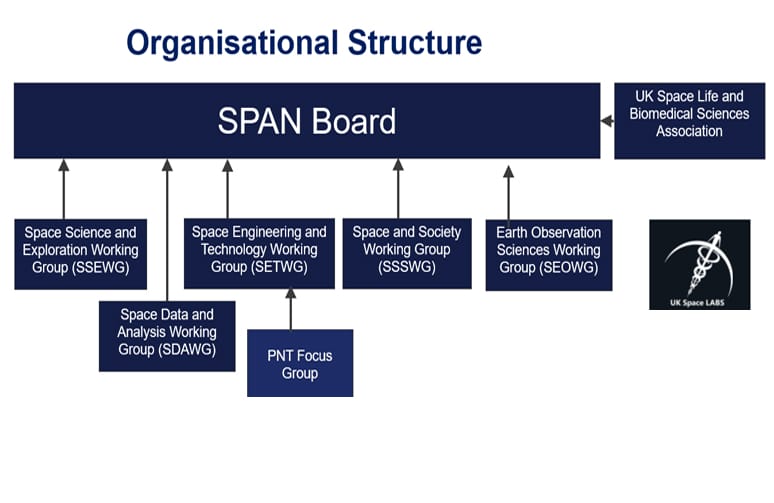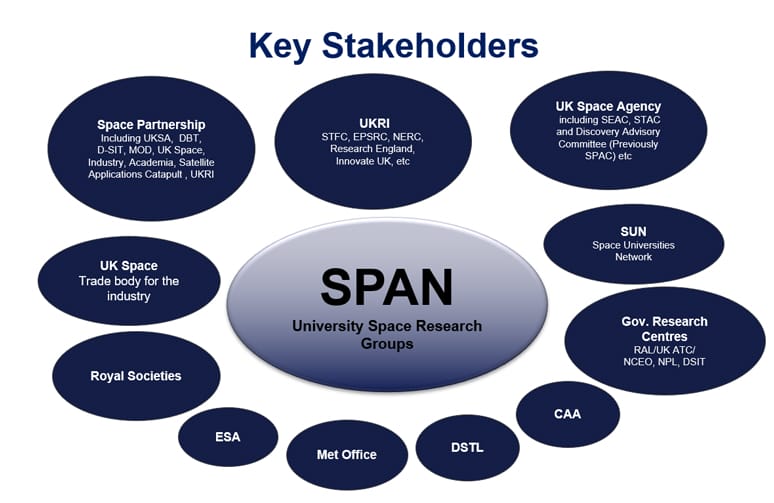SPAN provides a voice for space-related research in the UK in the fields of Earth Observation, Space Engineering, Space Science and Exploration. Each of these areas are represented by a working group which provides a forum for the discussion of issues arising in the community. SPAN also hosts a Data and Analysis Working Group which overlaps heavily with Earth Observation and Space Science and Exploration.
New additions to SPAN are welcome, and we collaborate and interact with other research organisations and networks in the space sector.
The ability to observe our planet from space has led to a huge growth in the understanding of our planet, its climate and its resources. Earth Observation covers all aspects of studying the Earth from space including the development of instrumentation, its operation and the processing, analysis, publication and application of its data.
The use of technology in space and in support of space assets involves many novel challenges associated with the launch, environment and remoteness. Space Engineering addresses these issues and, like any other branch of engineering, brings forward new and novel technologies that enables our exploitation of space for both commercial and scientific benefit. There is a Position, Navigation and Timing (PNT) Sub Group currently integrated in this Working Group.
Our understanding of the universe is enhanced by observing above the atmosphere and in the close proximity of celestial bodies (such as within a magnetosphere, on the surface of planets, near the Sun or in orbit around a comet). Space Science covers diverse subjects including Astronomy and Astrophysics, Planetary Science, Solar Physics and Solar-Terrestrial Physics. Space Science also includes the measurement of fundamental physical constants from space (such as the equivalence principle), high energy particles and gravitational physics including gravitational waves.
Space missions are generating massive and complex data sets, ranging from remote sensing of our Earth with Copernicus Sentinel’s, to mapping our Galaxy with Gaia, or the distant Universe with Euclid. The analysis and federation of multiple data streams together with tools to effectively mine these peta- and, increasingly, exascale-datasets is a key to maximising the economic, societal and scientific benefits from these space investments. This WG provides a forum to develop best practice space data policy,
leveraging emerging state of the art data technologies and techniques, in the development and operations of cutting edge space research missions.
The wider impact of Space as a domain as well as its impact on all aspects of society is an area of great interest. Sustainability, Space Law, Ethics and Regulation will play a crucial role in its impact across all of society, not just in space faring nations but those that can play a critical part of the wider infrastructure of society.


16 December 2022
Congratulations to UK scientists involved in the SWOT mission which will launch tonight. Take a look at SWOT - Surface Water and Ocean Topography
11 November 2022
SPAN has coordinated a workshop for its members to engage with Government (civil and defence) and UK Space to discuss opportunities for dual-use of technology, missions and applications. Outputs from the workshop will feed into a UK Space...